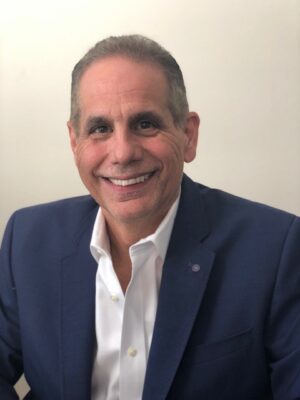
Suicide in America is at a record high.
Nearly 50,000 people died by suicide last year – 15 deaths for every 100,000 people. This marked a 5% spike over 2018, the year with the previous highest number of suicides. Suicides among young people were also higher than ever before.
“Suicide is usually not related to a particular incident,” said Jay Samander, M.D., a board-certified psychiatrist with Open Door Family Medical Center in Ossining. “It’s circumstances and psychosocial experiences and emotions that play factors. It can be hard to predict, but if you can work on prevention by treating the symptoms, you can dramatically reduce the incidence of suicide. Suicide is an impulsive act. Many people who have survived suicide will say they didn’t want to die.”
Samander likens the ability of a mental health provider to prevent suicide to that of a cardiologist preventing a heart attack.
“A cardiologist can’t prevent every heart attack but can address the risk factors that can reduce the chances of having one by getting you to lower your cholesterol, lose weight and decrease your blood pressure,” he added. “Mental health providers do the same in reducing the rate of suicide with risk assessments – screening patients for depression, helping them sleep better, educating them about alcohol and substance abuse and treating their symptoms with medication and/or talk therapy like cognitive behavioral treatment (CBT). Yet, in both cases, some people will still die.”
Studies show that the suicide rate among males is about four times higher than females. While males comprise 50% of the population, they make up nearly 80% of deaths by suicide. Guns are involved in more than 50% of suicides.
“Suicides by guns are higher than homicides,” Samander added. “Getting rid of guns is a huge way to decrease suicide….It becomes less likely if you don’t have the means – in this example, a gun.”
Suicide among children ages 10 through 14 is the fourth leading cause of death in this age group.
Shonny Capodilupo, senior director of behavioral health at Open Door, said she and her team work to increase positive behavioral change and alter the way patients think about their circumstances. Capodilupo and company teach patients ways they can act more beneficially, and they educate families to support their children and watch for warning signs.
“People considering suicide may stop those activities that had previously given them pleasure,” she said. “They may stop going to the gym, for example, and start isolating from friends and family. Parents need to look for changes in functioning, and other signals such as any increase in irritability. There are usually warning signs.”
Parents may misunderstand their children’s cries for help, she said. “They may believe they’re just ‘acting out,’ or being overdramatic. They don’t realize that every expression of suicide ideation needs to be taken seriously. Part of what we do is educate parents so they recognize the signs, understand how to support their child and (are) actively involved in a crisis plan in that prevention effort.”
According to NAMI, the National Alliance for Mental Health, warning signs include:
- Increased alcohol and drug use;
- Aggressive behavior;
- Withdrawal from friends, family and community;
- Dramatic mood swing ;
- Impulsive or reckless behavior.
Integrated care is an important factor in preventing suicide, Samander said. “At Open Door, behavioral health is embedded in primary care. A patient who is depressed and sees a primary care provider can be referred immediately to behavioral health for help and, if necessary, substance use treatment.”
Help typically includes cognitive behavior therapy and medication that addresses the symptoms.
“As a person with suicidal thoughts starts to improve, the hope is that their thinking becomes clearer and impulse control better,” said Lynn Gonzalez, director of behavioral health at Open Door. “Mental health treatment provides the needed support to monitor symptoms, build coping skills and improve self-esteem and problem-solving.”
If you are experiencing suicidal thoughts or another mental health crisis, call 988.



















